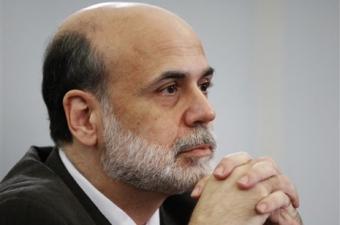In a prepared ""statement"":http://www.federalreserve.gov/newsevents/testimony/bernanke20130522a.htm issued at the congressional ""Joint Economic Committee"":http://www.jec.senate.gov/ Wednesday, Federal Reserve Chairman Ben Bernanke testified regarding his position on the Fed's open-ended purchases.
[IMAGE]Based on the facts showcased, as well as the statistics he chose to focus upon, it appears that Bernanke is in no rush to slow or inhibit the Fed's current open-ended purchasing rate currently hovering at $85 billion assets per month.
Bernanke covered a good deal of ground during his testimony, touching on everything from the current condition of the economy (claiming that although experiencing moderate improvements, it remains relatively weak overall), fiscal policy (urging the Congress to focus more towards long-term versus near-term issues at hand), and monetary policy (advocating a vital need for accomplishing two main objectives: maximum employment and price stability).
Many would ask what this means specifically for the housing industry. In light of the current unemployment rate ranking well above normal levels and inflation being presently subdued, the Fed has turned to two main policy tools in order to achieve the two above mentioned employment and stability objectives.
[COLUMN_BREAK]The first policy is known as ""forward guidance,"" which basically underscores the intention of the FOMC in continuing a commitment of maintenance in regards to the highly accommodative monetary policy, for as long as is needed in order to promote continued progress toward maximum employment and price stability.
The second alternative policy implementation relies on making large-scale purchases of longer-term Treasury securities and agency mortgage-backed securities (MBS)--purchases that, when made, will increase downward pressure on longer-term interest rates, including mortgages.
After all the dust of debate settled, Bernanke's bottom line was blatantly clear. While conceding that, ""a long period of low interest rates has costs and risks,"" he countered with the conclusion that, when viewed with a long-term perspective, ""a premature tightening of monetary policy could lead interest rates to rise temporarily but would also carry a substantial risk of slowing or ending the economic recovery and causing inflation (ultimately) to fall further.""
Urging Congress to look more towards a focus on improving long-term healthcare and social security costs, Bernanke appeared to have an overall view of the current market as relatively weak, albeit somewhat improved of late, and hence advises Congress to err on the side of caution.
As to whether or not Congress will heed Bernanke's economic insight or proceed to brave ahead by putting the brakes on the acquisition of assets, remains to be seen, although predictions point to a proactive pruning and pausing of asset purchases before the conclusion of 2013, followed by an assumed complete cessation as the initial six months of 2014 ensue.

 theMReport.com Your trusted source for mortgage banking news
theMReport.com Your trusted source for mortgage banking news









